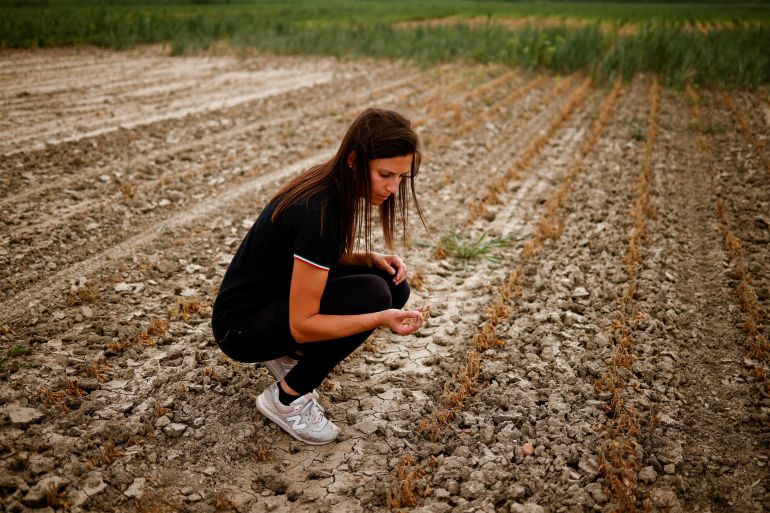Italy declares state of emergency in five regions over drought
The northern agricultural Po valley has been hit by its worst drought in decades.

Italy has declared a state of emergency over a worsening drought that has plagued five northern regions in recent weeks, Prime Minister Mario Draghi’s office has announced.
The cabinet approved a state of emergency in Emilia-Romagna, Friuli-Venezia Giulia, Lombardy, Piedmont and Veneto until December 31, the government said in a statement on Monday, and allocated a 36.5 million euro ($39.5m) fund to help those affected.
Keep reading
list of 3 itemsItaly signs deal with Algeria to increase gas imports
Italy PM Draghi to skip Africa trip after positive COVID test
Italy is facing an unusually early heatwave and a lack of rainfall, particularly in the northern agricultural Po valley, which has been hit by its worst drought in decades.
The state of emergency provides “extraordinary means and powers” to help guarantee public safety, compensation for losses while seeking to guarantee normal living conditions for those in the area.
According to the country’s largest agricultural union, Coldiretti, the drought threatens more than 30 percent of national agricultural production, and half of the farms in the Po Valley, where Parma ham is produced.
Lakes Maggiore and Garda – located close to Milan between the regions of Piedmont and Lombardy – were also hit by lower than normal water levels for this time of year, while further south the Tiber river, which runs through Rome, also dropped.
The Po, the peninsula’s largest water reservoir, is extensively used by farmers to irrigate rice paddies, farm fields and grazing land for cows.
In recent days, several municipalities have announced restrictions. Verona, a city of a quarter of a million people, has rationed the use of drinking water, while Milan has announced the closure of its decorative fountains.
As a result of the drought, hydroelectric power production has fallen sharply. Hydroelectric plants, mostly in the mountainous north of the country, account for nearly 20 percent of national energy production.
The emergency declaration came a day after at least seven people died after a glacier collapsed in the Italian Alps which Draghi said was “without doubt” linked to global warming.